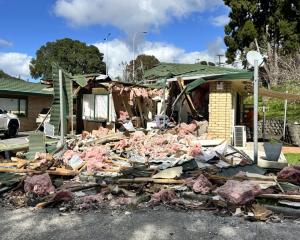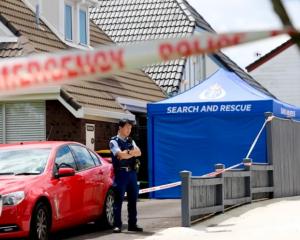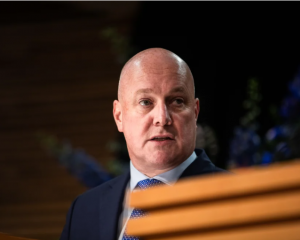Rugby is brushing off concussions with a "she'll be right" attitude, researchers who conducted a study of all Rugby World Cup matches say.
The Massey University researchers surveyed the tournament's 48 games and found that seven of the 13 players they deemed to have been concussed returned to the field or played in another match, against International Rugby Board guidelines.
And the researchers said that if serious head injuries were being disregarded during a professional international competition, it would certainly be happening at other levels.
Each week, 146,000 people play rugby, according to the New Zealand Rugby Union.
"Concussions aren't taken seriously enough in general.
They're just brushed off with a 'she'll be right' attitude," Massey neuropsychologist Prof Janet Leathem said.
A concussion was defined as a disturbance of the brain after a blow or violent shaking of the head. Symptoms include temporary unconsciousness, headache, memory loss, vomiting and nausea.
"Concussions in the first instance might not be that dangerous, but if you go back on and continue playing after one, that's really dangerous. That's second-impact syndrome, which can be life-threatening," Prof Leathem said.
The Accident Compensation Corporation and the International Rugby Board both require a player to be stood down for up to three weeks after a concussion.
During the World Cup final, French player Morgan Parra took a blow to the head from All Blacks captain Richie McCaw's knee and appeared shaky as he stood up.
He was taken from the field but reappeared shortly afterwards and played on for five minutes, until he took another knock during a tackle and went off for good.
But Canadian flanker Adam Kleeberger was helped from the field after he clashed heads with All Black Tony Woodcock and did not return.
Natasha Bauer, who did the research as part of her honours clinical psychology dissertation, watched full match coverage broadcast by Maori Television and noted 95 incidents.
Prof Leathem then reviewed them and determined there was enough evidence to say there were 13 "probable" concussions.
But the NZRU's senior scientist in injury prevention and high performance, Dr Ken Quarrie, said not all blows to the head resulted in concussion and a diagnosis usually required evaluation by a doctor.
"Making a call in many of the cases will have been little more than guesswork, particularly if based solely on television footage," he said.
The researchers also said broadcast commentators tended to play down the possible effects of head knocks on players.
"The commentary didn't really take it seriously, but they have to be entertaining, I suppose," Prof Leathem said.
"If someone badly broke their leg, they'd take that seriously, but with concussion you often can't see it."
World Cup knocks
• 48 matches
• 13 probable concussions
• 7 players continued
• 6 taken off













